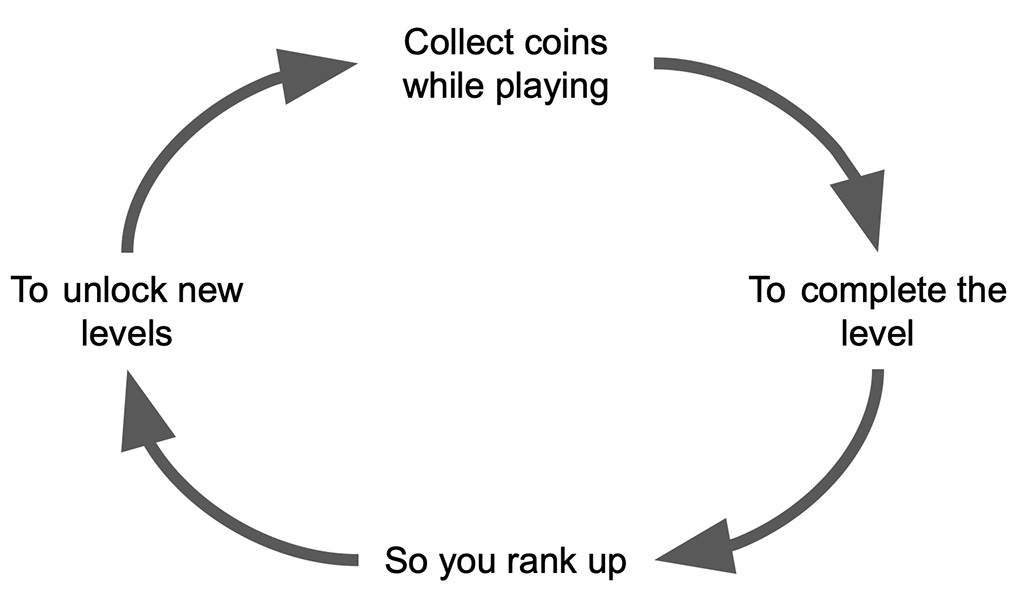Compulsion Loops
Why do you find games fun? Games are not just a combination of engaging visuals, sound, and music. Great games are also built with a deep understanding of human psychology.
Game designers constantly think about how to keep players engaged and wanting to come back to play more. A core design concept used to make this work is concept called a “compulsion loop”. In his interview, Matteo Marsala talks about how compulsion loops are a key part of the games he builds.
Think about the games you love to play and you will likely find a common pattern. You are almost always asked to do something and by successfully completing that task, you will receive a reward. That reward allows you to unlock more things to do. You then repeat the process and complete the next task, which in turn gives you another reward.

People have a natural desire to complete things. We like checking off items on lists, seeing numbers increase towards a goal, and to make collections of things. All of these behaviors can be incorporated into game compulsion loops.
Some games are very explicit with their loops. Pokémon even makes it the game’s catch phrase with “gotta catch ‘em all!”. Almost all games give you some sort of score and you earn points as you make progress, often “leveling up” as you reach specific tiers.
Although they are not strictly games, social media has adopted these same tricks to keep you coming back. Follower counts, like counts, and view counts are used to drive compulsion loops to encourage you to keep watching, posting, and following.
As you make games, there are a few concepts you should keep in mind:
-
What are you asking your players to do? Make sure the activities players do always feedback on themselves. Avoid activities that are dead ends and do not build on each other.
-
Make it extremely obvious to players why they are doing what you ask them to do. What is the reward? You likely have only a few seconds for people to understand before they will give up.
-
For longer games, layer in complexity over time. Let people gain mastery over one thing before introducing another thing. This gives people a sense of accompishment, and also keeps the game feeling new as you introduce new concepts.